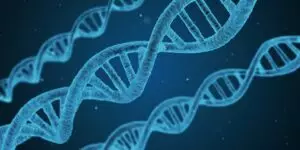Can 1st Step Behavior Therapies actually help someone addicted to drugs or alcohol? Is addiction even treatable? It can feel like maybe it’s not. From the perspective of the person suffering from the addiction and the people who love them, it can feel hopeless. But it’s not hopeless. Treatment for drug and alcohol abuse and addiction is possible.
Drug and alcohol addiction is widespread throughout the world, the collective United States, and the state of Florida. Thousands of people suffer every single day from addiction to all kinds of substances. Every day at least sixteen people die from an opioid related death in Florida. Addiction is killing people in this country rapidly, and it is more than likely worse than is even reported seeing as most people who suffer from addiction do not report it. They aren’t seeking treatment or perhaps don’t feel as though they deserve treatment or that it is accessible to them. When we do hear about the epic numbers of people dying from addiction everyday it is generally talked about in terms of opioids. Heroin, fentanyl, hydrocodone, oxycodone, all commonly utilized opioids that lead someone quickly down the path to overdosing. In spite of how true that is, there are also many other substances that lead people down the same ill fated path. Illicit substances like cocaine, amphetamines, barbiturates, or even something completely legal like alcohol, claim lives everyday as well. Chemical dependency is a killer and hordes of people suffer in silence. Addiction is wreaking havoc on our communities and institutions. It is stealing our mothers, fathers, our work force and therein our productivity. The population as a whole is suffering.
660,000 people across the world died in 2016 just from drug related complications. As we watch so many beloved members of communities succumb to this disease, one thing is clear, far too many people are undereducated about the very basics of chemical dependency, psychological addiction, and substance use disorder treatment.
This is an unnecessary truth as there have been study after study done, government reports are put out almost yearly. People are researching constantly to understand the human brain as it relates to the chronic disease of addiction. The National Institute on Drug Abuse says that with so many different kinds of research and so many studies the scientific community over the years has produced a wealth of knowledge on the matter of substance abuse. Scientists have worked through the data and based on the analysis thereof real progress has been able to be made on the effective treatments being offered for those struggling with drug or alcohol addiction.
Is There a Cure for Substance Addiction?
Substance abuse is absolutely treatable! That’s the good news. The bad news is, there is not a complete cure for this chronic disease. There’s nothing anyone wants more than a cure for addiction, especially those who have watched the ones they love suffer through the addiction, or someone who has struggled to active recovery themselves, but unfortunately, like so many other chronic illnesses, addiction leaves the abuser with no completion of recovery available to them.
But the news isn’t all bleak. Though a cure isn’t available, someone who suffers from this chronic illness can certainly live a mostly normal and very happy life through consistent treatment. Continuing treatment can help someone struggling with addiction to an intoxicating substance to manage the symptoms of their addiction, symptoms like triggers and cravings, so that they can continue through active recovery and live a normal life. With the research and studies done to better understand our brains and the way we interact with intoxicating substances, amazing and effective treatments and strategies have been developed to help someone move from deep addiction to active recovery. Through medically supervised detoxification at a South Florida detox, Broward County drug rehab, and consistent aftercare therapy, an addict can even thrive in life.
Genetic & Environmental Origins of Drug and Alcohol Addiction

This is a hard truth for many to accept because for the longest time, indeed for centuries, addiction has been seen as criminal, disgusting, or at the least lazy. These portrayals of people suffering with a disease only makes something like addiction more of a risk for the population at large because shame is a driving element in addiction. Marginalizing a whole group of people suffering from chronic disease only spreads the problem and worsens the effects.
Genetic – The natural aspects of substance abuse can be blamed on someone’s genetic code. If a person struggling with drug or alcohol abuse has a parent or grandparent or someone else who is blood related to them who also suffers from the disease, it is more likely that they will do so as well. The genetic code that they were conceived with is absolutely part of someone’s propensity toward drug or alcohol addiction. That said, the older they get, the closer to puberty they get, the more it is someone’s environment that leads them to addiction.
Environmental – To someone who is ignorant of the genetic propensity that some genes can give toward substance abuse and chemical dependency it would be easy to say that the only input someone has to deal with is environmental. For some this may seem like a no brainer. “Just say no.” the Dare program would have us believe that it’s as easy as that, but those things that nurture us in the direction of drug and alcohol abuse such as peer pressure, socio economic implications, availability, homelessness and other traumas such as domestic abuse, childhood abuse etc all play a part in the deep psychological propensity someone may have toward addiction.
People like to blame the person struggling with addiction. The stigma long in the public mind cannot accept the possibility that addiction isn’t something someone can just walk away from. They can’t fathom the notion that someone is unable to opt out of the disease of addiction. They often can’t, in fact, make the leap to calling addiction a disease. This stigma is real and it hurts those suffering. It helps limit treatment and also causes people to not seek the treatment available, or to even believe they don’t deserve said treatment.
Nature and nurture create a perfect storm for some people, and that is a difficult thing for people outside of the problem to understand. But the good news is that that is changing. In a world devastated by hordes of drug related deaths daily, it’s hard for people to keep their heads in the sand. Everyday more and more people are waking up to the realities of this chronic disease. People are steadily, often for heartbreaking reasons, seeing how formidable addiction is. As this happens federal, statewide and local governments are starting to take notice. Insurances are offering more coverage for treatment and communities are supporting measures to keep drug abusers safe even when they aren’t yet ready for treatment. These are heartening developments to be sure.
The Basics of Treatment for Drug and Alcohol Dependence

The National Center for Biotechnology Information gives five different stages of addiction treatment.
- Early acknowledgement and awareness – It is often true that at some point in their journey an addict wishes they could stop using. There may even be times they are self aware of how much they wish they could stop as they pick up the drug and use again. Eventually it is hoped that an addict at this point is able to admit concretely to themselves that they have a problem. That they aren’t able to stop, and that the only way to move forward will be to seek help. The very first step at all is admitting to yourself that there’s a problem. If an addict doesn’t get to this place, there is no room for addiction recovery. Even if mandated by the court, if the person struggling with the addiction doesn’t admit that it’s a problem, they will never get their heads around recovery. Though they’ve admitted to their problem, it is most likely that they are still using.
- Consideration or exploration – During the consideration phase of recovery, the person struggling with addiction to an addictive substance whether drug or alcohol, considers their next move. This is when they are likely to talk to a trusted loved one to get help. They start to externalize their fears about their addiction and they may start to consider what treatment may look like.
- Exploring recovery – When someone reaches the stage of exploring recovery, their drug or alcohol recovery may still be a problem, but their denial has gone by the wayside. This is the vital stage of recovery that sees the person struggling with addiction to drugs or alcohol becoming more motivated to find treatment and exploring their options even more. They will likely spend this time researching treatment facilities and types of therapies in order to better understand what will be effective for their particular position.
Early recovery – Early recovery means quitting the substance that the addict is chemically dependent on for good and learning the skills necessary to start a sober way of living. This is the stage where the addict goes to detox and rehab. Many people benefit from a longer term inpatient detox and rehab. This is because inpatient treatment can take people away from the triggers and cravings that helped them get to this place in the first place. This can make it easier to detox from the drug, getting it out of the addicts system, and then through rehabilitation therapy, to learn the life skills necessary to get back out there and resist the urge to use. It’s a vulnerable time in an addicts life because they go through a lot in recovery. Medically difficult withdrawal symptoms notwithstanding, a person going through rehab will likely face some lurking demons they didn’t realize were making trouble just below the surface, like unprocessed trauma or even undiagnosed mental illness. They may realize that changing their lives might include cutting themselves lose from friends, and environments that maybe bolstered their addiction. But even through the pain and vulnerability, most addicts come out of this stage of recovery stronger, and more confident in their ability to live and withstand cravings and triggers.
- Active recovery and maintenance – Active recovery is not as rigorous and acute as the other stages of recovery. Active recovery is the stage of addiction treatment that lasts the rest of the person’s life. That doesn’t mean it is easy. The need for active recovery continuing treatment for relapse prevention is almost always underestimated. Continuing therapy is vital for preventing relapse and consequently also relapse. Relapse prevention, like rehab, can include group or individual therapy, but often includes some combination of the two. The addict may also seek out and join some kind of 12 step program.
How Can Someone Get Help in Broward County, South Florida?
1st Step Behavioral Health, South Florida Detox & Broward County Drug Rehab are here to help. At 1st Step an addict will receive top quality services and be able to shape their treatment to their own needs. Call today to speak with us so we can answer any of your questions and help you get one step closer to active recovery.
Jump to a Section
Call (855) 425-4846

 Early recovery –
Early recovery – 